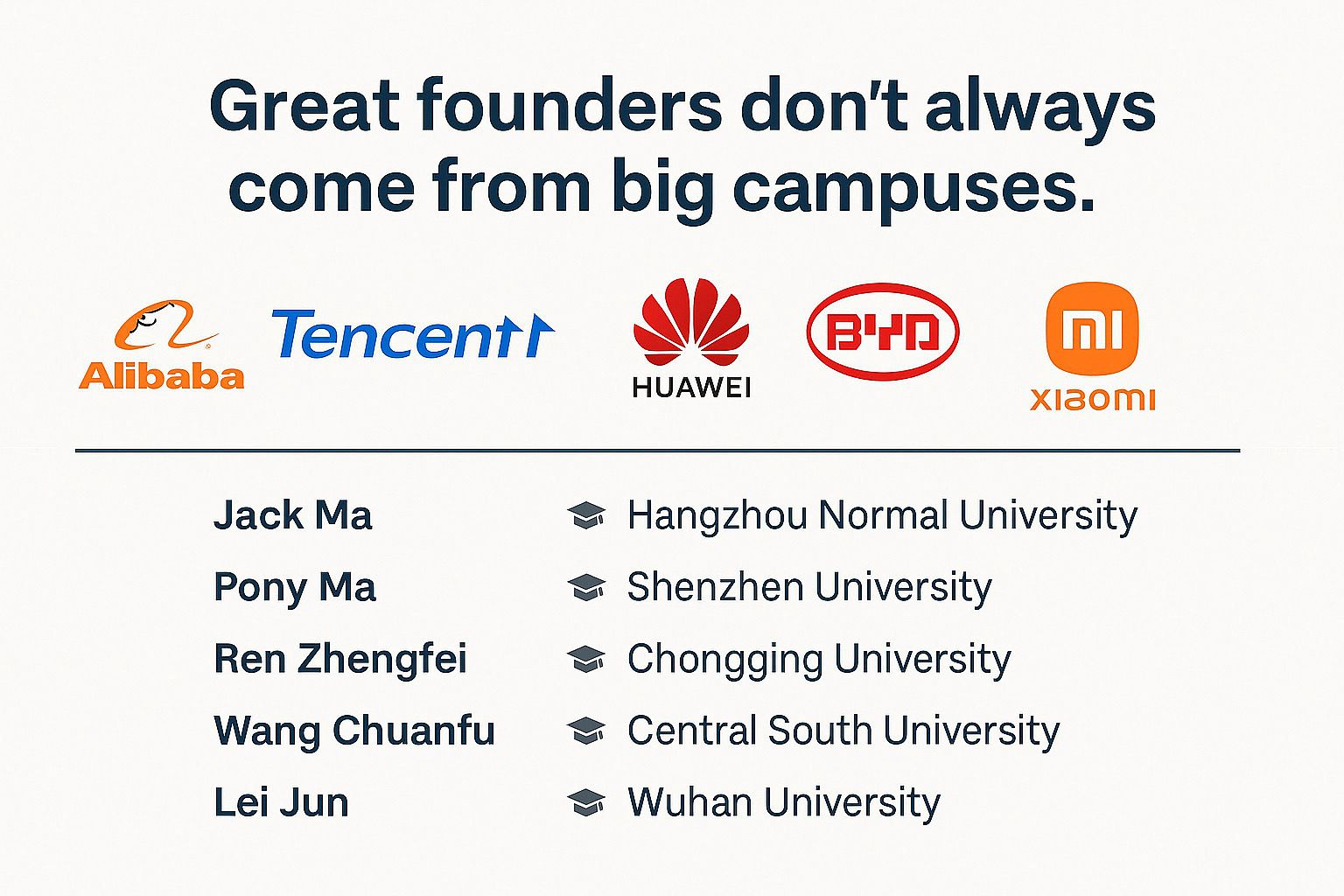“In Indonesia, people admire UI, ITB, UGM graduates and often look down on others. But in China, billion-dollar companies were built by ‘second-tier’ alumni. That difference tells us something important.”
In Indonesia, we often hear the same refrain: “Alumni from big campuses like ITB, UGM, and UI are the best.” These institutions deserve respect, they are excellent schools. But the danger lies in assuming that greatness can only come from them, while looking down on talent from so called “second-tier” universities.
When we look at China, the story is quite different. Many of China’s top tech founders did not come from the country’s most prestigious universities (Tsinghua and Peking). Instead, they built global giants from humbler academic beginnings:
Jack Ma (Alibaba) → Hangzhou Normal University.
Pony Ma (Tencent) → Shenzhen University.
Wang Chuanfu (BYD) → Central South University.
Ren Zhengfei (Huawei) → Chongqing University.
Lei Jun (Xiaomi) → Wuhan University.
None of these names scream “elite.” Yet, these founders transformed not only China’s economy, but also the global tech landscape.
Why did it work in China?
Rapid Industrialisation: Industries grew so fast that skills mattered more than prestige. There simply weren’t enough “elite” graduates to meet demand.
Practical Education: Regional universities specialised in applied sciences : metallurgy, battery technology, software. Producing graduates with exactly the expertise needed.
Talent Dissemination: Opportunities spread beyond Beijing and Shanghai, allowing visionaries from “second-tier” schools to thrive.
Ecosystem Values: Success was measured by vision, resilience, and execution, not by the university printed on a diploma.
In short: China’s rapid growth democratised talent. Great founders emerged from everywhere, not just from the academic elite.
Indonesia’s Contrast
Here, prestige still dominates. Hiring managers, companies, and society often put disproportionate value on whether someone is from UI, ITB, or UGM. This creates a narrow funnel: we risk overlooking brilliant minds from universities like Hasanuddin, Untan, USU, Unsri, Unmul, Unlam and many others across the archipelago.
A Call for Change
If Indonesia is serious about producing world-class companies, we need to shift our mindset. Instead of asking:
“Which campus?”
We should ask:
“What skills does this person bring?”
“What problems can they solve?”
“What vision do they carry for the future?”
Because as China has shown us, the next great founder doesn’t have to come from a big name university. They could just as easily be studying today at a regional campus, waiting for a chance to prove that resilience, creativity, and vision matter far more than prestige.
Perhaps Indonesia’s next unicorn founder won’t carry a UI, ITB, or UGM badge. Their true almamater may instead be the school of grit, curiosity, and execution.
Writer: Qodja Galata



